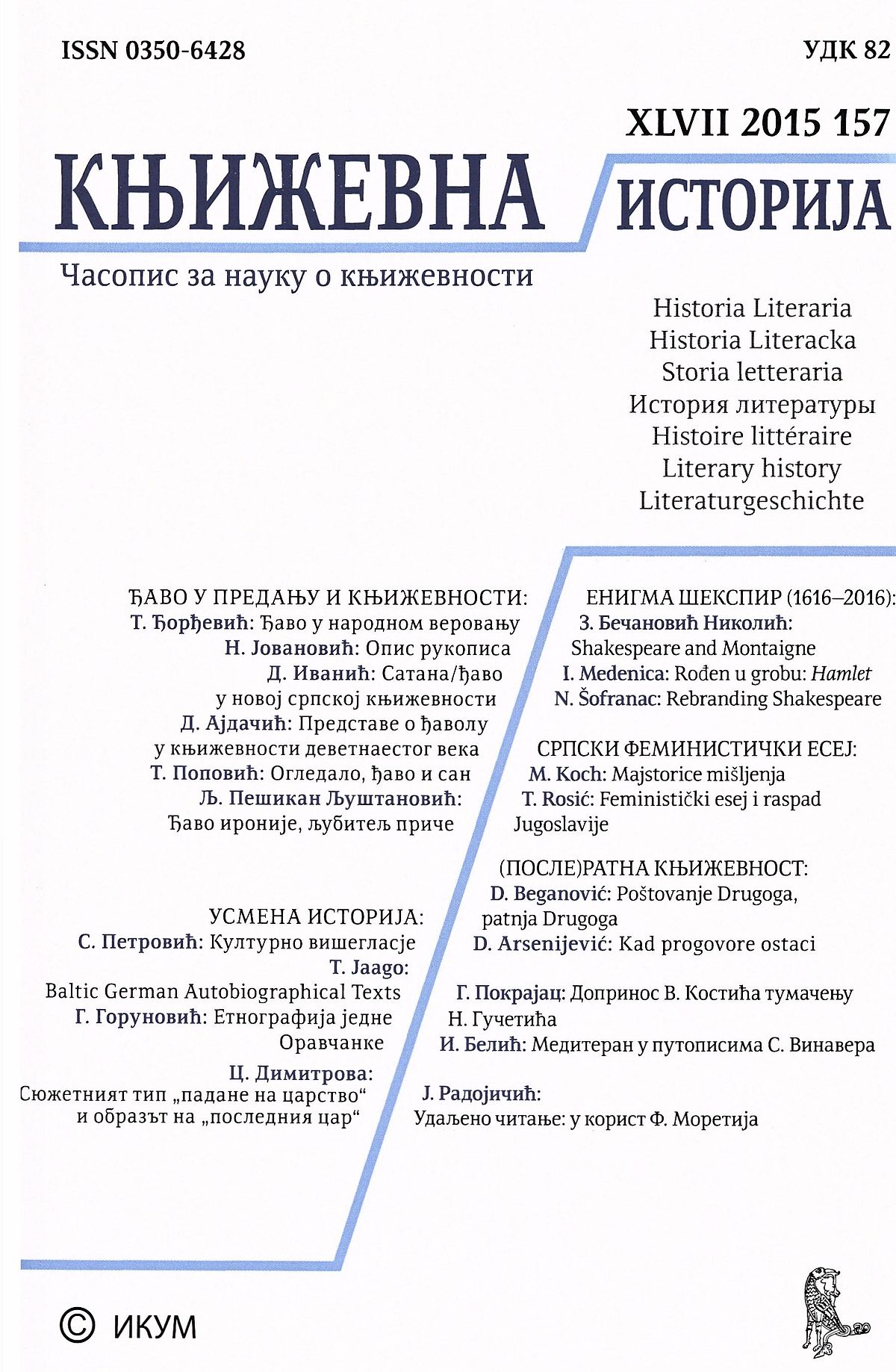Усмена историја – културно вишегласје као мост између прошлости и садашњости
Oral History –Polyphony of Culture as a Bridge
Between the Past and the Present
Author(s): Sonja PetrovićSubject(s): Theory of Literature
Published by: Институт за књижевност и уметност
Keywords: oral history; interview; oral sources; oral tradition; life stories; memory; narration; interpretation
Summary/Abstract: Oral history is generally considered to be a method of qualitative interview, whose purpose is to collect oral evidence, memories and oral tradition. Sometimes the material gathered in qualitative interview is also called oral history, by analogy with terms ‘life story’, ‘life history’, or ‘personal (experience) narrative’. Oral history is an important means of providing information about the past of oral and indigenous societies, or about the recent past of literate societies from the perspective of ordinary, oppressed, marginalized people, or those who were left out from the official history. Oral history interviews serve as helpful evidence in social history and microhistory research, as well as in attempts to reconstruct history of everyday life in the past. Although the method of qualitative interview can be traced back to folkloristic, ethnological and anthropological fieldwork, historians were the first who established it as a legitimate scientific instrument in the process of providing historical evidence, accepting it per se, or as a supplementary to a written evidence. A short survey of the history of oral history presents principal phases of its development. The earliest reference to gathering oral sources shows that they had been used as evidence in historical, ethnographic and other writings, and analysis of oral tradition indicates that some genres, like genealogies, historical legends, or epic, were respected, believed to be true and served as local community history. The advance of methodology foregrounded new questions concerning every part of the research process, e.g. regarding the roles of researcher and interviewee, the nature of the interview as a dialogue and investigating technique, relationship between record, text, memory and narration, interviewing process as reflexive practice. The contemporary stage is marked by the influence of cultural and postmodern turn in humanities and social sciences. By accepting orientation to reconstruct ‘history from below’ and to develop intersubjectivity and sensibility for the socially powerless people and people who were invisible up to that moment, oral history gained new tools and perspectives. At the same time, oral history from the beginning grew as an interdisciplinary field, which can be demonstrated not only by huge scope of various research topic, but also by the methodology of a qualitative interview, which several humanistic and social disciplines share and further improve according to their specific needs. Current ontological and epistemological points of discussion are connected to the reassessment of validity of the oral history method, veracity of oral sources, analogies and differences between the oral history and oral tradition, reliability, organization and construction of memory, typicality of interviewees as representatives of a certain social group, phenomenon of collaborative authorship, analysis of polyphony (narrative and actual voices) in discourse, as well as the issues of narrative construction and interpretation.
Journal: Књижевна историја
- Issue Year: 47/2015
- Issue No: 157
- Page Range: 293-304
- Page Count: 12
- Language: Serbian

